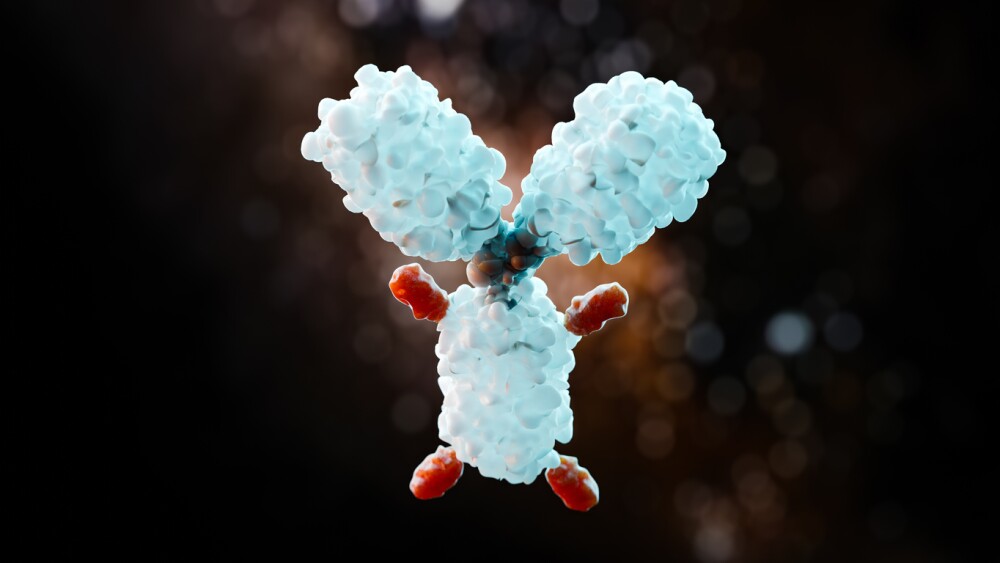-Data Supports Deramiocel’s Sustained Efficacy and Safety in Treating DMD-
-Improvements Seen in Multiple Cardiac and Skeletal Endpoints Demonstrating Stabilization of Cardiac and Skeletal Muscle Function Over 3 Years of Treatment-
-Company on Track to Fully Submit Biologics License Application (BLA) by End of 2024-
SAN DIEGO, Oct. 11, 2024 (GLOBE NEWSWIRE) -- Capricor Therapeutics (NASDAQ: CAPR), a biotechnology company developing transformative cell and exosome-based therapeutics for the treatment of rare diseases, today announced positive 3-year safety and efficacy results from its ongoing HOPE-2 open label extension (OLE) study for its lead asset, deramiocel, for the treatment of Duchenne muscular dystrophy (DMD). The data was highlighted in a late-breaking poster presentation at the 29th Annual Congress of the World Muscle Society (WMS), October 8-12, 2024 in Prague, Czechia.
“These findings are crucial as they demonstrate consistent long-term benefit for cardiac function in DMD. There are no approved therapies for cardiomyopathy in DMD, which is the leading cause of mortality in DMD,” said Dr. Craig McDonald, National PI, University of California, Davis. “In addition, the data demonstrated sustained improvements in skeletal muscle function, as measured by PUL v2.0, over a three-year period. To our knowledge, no other therapeutic has exhibited such a favorable safety and efficacy profile in DMD.”
“These results are extremely impactful for patients living with DMD as they showed sustained cardiac and skeletal muscle benefits after 3 years of continuous treatment with deramiocel, which underscores the potential long-term efficacy this therapy can offer. As we previously announced, this dataset will be one of the key elements of our BLA submission to the U.S. Food and Drug Administration (FDA), for approval of deramiocel to treat patients with DMD cardiomyopathy,” said Linda Marbán, Ph.D., Capricor’s chief executive officer. “We have been working closely with FDA to move deramiocel towards potential approval as quickly as possible because once heart function is lost, it is unlikely to be restored. Furthermore, as more therapies become available that could impact the trajectory of skeletal muscle loss in DMD, preservation of cardiac function will be even more important. We expect deramiocel to be a lifelong treatment, with an infusion delivered quarterly, with major potential to be widely adopted across the DMD-cardiomyopathy treatment landscape.”
The 3-year data from the HOPE-2 OLE study demonstrated improvements in multiple cardiac measures of cardiac function, including left ventricular ejection fraction (LVEF%), as well as indexed volumes, which are considered highly relevant in terms of predicting long-term cardiac outcomes. In addition, there was clear bifurcation in the treatment effect seen in those that had ejection fractions greater than 45% at the end of HOPE-2 which suggests that early and sustained intervention will be key in attenuating the impacts of DMD cardiomyopathy. In order to evaluate the relevance of the data to disease progression as well as the chronic and progressive nature of DMD where cardiac function can decline year over year, a natural history data set was used to compare the trajectory of those treated with deramiocel to standard of care. In addition to the cardiac data, patients demonstrated a statistically and clinically relevant benefit (+3.7 points, p< 0.001) in the PUL v2.0 total score when compared to an external comparator dataset of similar DMD patients. The HOPE-2 OLE study continues to show a favorable safety profile for long-term treatment of deramiocel. In conclusion, the results of this study showed sustained cardiac and skeletal benefits after 3 years of continuous treatment with deramiocel. This data was previously highlighted at the PPMD Annual Meeting in June 2024.
Session Details: Session 4 will be showcased from 9:45-10:45 a.m. EDT today, October 11, 2024.
Poster Number: 721LBP
A copy of the poster presentation is available on the publications section of the Capricor website.
The full WMS 2024 program is available at https://www.wms2024.com/page/programme.
About Deramiocel
Deramiocel (CAP-1002) consists of allogeneic cardiosphere-derived cells (CDCs), a population of stromal cells that have been shown in preclinical and clinical studies to exert potent immunomodulatory, antifibrotic and regenerative actions in dystrophinopathy and heart failure. CDCs act by secreting extracellular vesicles known as exosomes, which target macrophages and alter their expression profile so that they adopt a healing, rather than a pro-inflammatory, phenotype. CDCs have been the subject of over 100 peer-reviewed scientific publications and have been administered to over 200 human subjects across several clinical trials.
Deramiocel for the treatment of DMD has received Orphan Drug Designation and the regulatory pathway for deramiocel is supported by RMAT (Regenerative Medicine Advanced Therapy Designation). In addition, if Capricor were to receive FDA marketing approval for deramiocel for the treatment of DMD, Capricor would be eligible to receive a Priority Review Voucher (PRV) based on its previous receipt of a rare pediatric disease designation.
About Duchenne Muscular Dystrophy
Duchenne muscular dystrophy (DMD) is a devastating genetic disorder characterized by progressive weakness and chronic inflammation of the skeletal, heart and respiratory muscles with mortality at a median age of approximately 30 years. It is estimated that DMD occurs in approximately one in every 3,500 male births and that the patient population is estimated to be approximately 15,000-20,000 in the United States. DMD pathophysiology is driven by the impaired production of functional dystrophin, which normally functions as a structural protein in muscle. The reduction of functional dystrophin in muscle cells leads to significant cell damage and ultimately causes muscle cell death and fibrotic replacement. Treatment options are limited and there is no cure.
About Capricor Therapeutics
Capricor Therapeutics, Inc. (NASDAQ: CAPR) is a biotechnology company dedicated to advancing transformative cell and exosome-based therapeutics to redefine the treatment landscape for rare diseases. At the forefront of our innovation is our lead product candidate, deramiocel (CAP-1002), an allogeneic cardiac-derived cell therapy. Extensive preclinical and clinical studies have shown deramiocel to demonstrate immunomodulatory, antifibrotic, and regenerative actions specifically tailored for dystrophinopathies and heart disease. Deramiocel is currently advancing through Phase 3 clinical development for the treatment of Duchenne muscular dystrophy. Capricor is also harnessing the power of its exosome technology, using its proprietary StealthX™ platform in preclinical development focused on the areas of vaccinology, targeted delivery of oligonucleotides, proteins and small molecule therapeutics to potentially treat and prevent a diverse array of diseases. At Capricor, we stand committed to pushing the boundaries of possibility and forging a path toward transformative treatments for those in need. For more information, visit capricor.com, and follow Capricor on Facebook, Instagram and Twitter.
Cautionary Note Regarding Forward-Looking Statements
Statements in this press release regarding the efficacy, safety, and intended utilization of Capricor’s product candidates; the initiation, conduct, size, timing and results of discovery efforts and clinical trials; the pace of enrollment of clinical trials; plans regarding regulatory filings, future research and clinical trials; regulatory developments involving products, including the ability to obtain regulatory approvals or otherwise bring products to market; manufacturing capabilities; dates for regulatory meetings; statements about our financial outlook; the ability to achieve product milestones and to receive milestone payments from commercial partners; plans regarding current and future collaborative activities and the ownership of commercial rights; potential future agreements; scope, duration, validity and enforceability of intellectual property rights; future revenue streams and projections; expectations with respect to the expected use of proceeds from the recently completed offerings and the anticipated effects of the offerings; and any other statements about Capricor’s management team’s future expectations, beliefs, goals, plans or prospects constitute forward-looking statements within the meaning of the Private Securities Litigation Reform Act of 1995. Any statements that are not statements of historical fact (including statements containing the words “believes,” “plans,” “could,” “anticipates,” “expects,” “estimates,” “should,” “target,” “will,” “would” and similar expressions) should also be considered to be forward-looking statements. There are a number of important factors that could cause actual results or events to differ materially from those indicated by such forward-looking statements. More information about these and other risks that may impact Capricor’s business is set forth in Capricor’s Annual Report on Form 10-K for the year ended December 31, 2023, as filed with the Securities and Exchange Commission on March 11, 2024, and in our Quarterly Report on Form 10-Q for the quarter ended June 30, 2024, as filed with the Securities and Exchange Commission on August 8, 2024. All forward-looking statements in this press release are based on information available to Capricor as of the date hereof, and Capricor assumes no obligation to update these forward-looking statements.
Capricor has entered into an agreement for the exclusive commercialization and distribution of deramiocel (CAP-1002) for DMD in the United States and Japan with Nippon Shinyaku Co., Ltd. (U.S. subsidiary: NS Pharma, Inc.), subject to regulatory approval. Deramiocel is an Investigational New Drug and is not approved for any indications. None of Capricor’s exosome-based candidates have been approved for clinical investigation.
For more information, please contact:
Capricor Media Contact:
Raquel Cona
KCSA Strategic Communications
rcona@kcsa.com
212.896.1204
Capricor Company Contact:
AJ Bergmann, Chief Financial Officer
abergmann@capricor.com
858.727.1755





